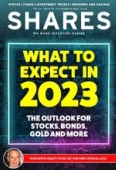Archived article
Please note that tax, investment, pension and ISA rules can change and the information and any views contained in this article may now be inaccurate.
Are the worst performing sectors the best ones the following year?

There is a widely held view among many investors that a successful investment strategy is to buy the previous year’s losers. The idea is that bad news might be fully priced in, and you’re paying a cheaper price to buy something that could rebound on good news.
To test this theory, I looked at the performance of each FTSE 350 sector on an annual basis dating back to the start of 2007, a long enough period to encompass good and bad economic conditions.
The conclusions were fascinating but not as straightforward as one would hope. Rather than being a simple ‘worst performer one-year, best performer the next’, one can make the following observations.
The most economically sensitive sectors such as banking typically see feast or famine. They tend to see a bad period then a very good one, but each period often lasts two or three years before reversing, rather than alternating each year.
A good example is industrial metals and mining. It fell approximately 57% in 2007 and down another 84% in 2008 as the global financial crisis gripped the world. But in 2009 the sector jumped 307% and then rose a further 72% in 2010. Performance then reversed, falling 54% in 2011, down 29% in 2012 and dropped another 49% in 2013. The seesaw motion then continued, including a 212% surge in 2016 and a 71% rise the following year. The retail sector has seen similar trends, albeit not as extreme.
Some apparently defensive sectors did not offer a smooth ride including telecoms services and electricity. Investors might presume that paying for your broadband or electricity is non-discretionary and therefore the utility provider’s earnings are solid and growing, and so by extension the share price slowly ticks up. That certainly wasn’t the case with nine ‘down’ years out of 16 for the telecoms services sector.
Other defensive sectors were kinder to investors. Tobacco has only seen three ‘down’ years since 2007 and healthcare has been up 12 out of the past 16 years. The latter was matched by the beverages sector.
The data shows many of the more volatile sectors provided the highest average returns – a reflection that you’re taking on more risk in the hope of winning big. Industrial metals and mining was the most volatile sector and also the most rewarding, with an average 26.8% annual return between 2007 and 2022. The worst was telecoms equipment with an average 5.2% annual loss.
Beverages and chemicals provided the same average return at 10.8% yet most investors would accept that much greater risks come with the latter sector, given demand is highly leveraged to economic activity and input costs are unpredictable.
In general, the fact so many sectors eventually bounced back after a down period goes to show the importance of being patient. For example, anyone who sold out of consumer services after a 28% slump in 2018 would have then missed four straight years of gains.
Important information:
These articles are provided by Shares magazine which is published by AJ Bell Media, a part of AJ Bell. Shares is not written by AJ Bell.
Shares is provided for your general information and use and is not a personal recommendation to invest. It is not intended to be relied upon by you in making or not making any investment decisions. The investments referred to in these articles will not be suitable for all investors. If in doubt please seek appropriate independent financial advice.
Investors acting on the information in these articles do so at their own risk and AJ Bell Media and its staff do not accept liability for losses suffered by investors as a result of their investment decisions.
Issue contents
Feature
- We reveal the best performing UK stocks in 2022: large and small
- The outlook for stocks, bonds, gold and more: what to expect in 2023
- Why investors can’t afford to overlook Europe’s growth and income champions
- Discover what fund managers got right and wrong in 2022
- Bad year for investors Terry Smith and Nick Train but Warren Buffett is a winner
Great Ideas
News
- Regulators put Microsoft and Meta under scrutiny as big tech growth slows
- Chemring’s cybersecurity hidden jewel is starting to shine
- How freezing temperatures saw power prices rocket to record levels
- Why consumer squeeze and higher rental rates have clobbered Airbnb shares
- Balfour Beatty shares hit 11-year high on booming infrastructure market
- Could the Royal Mail final dividend be decided in Westminster?
- House prices cooling quickly after two years of red-hot growth
 magazine
magazine








